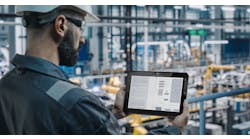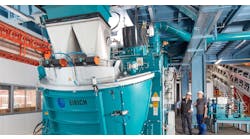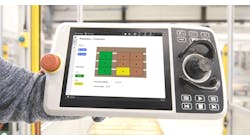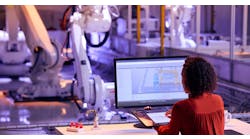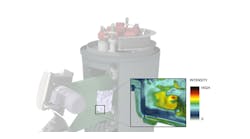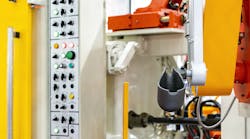High-profile efforts by Tesla Inc. have prompted almost universal interest (that is, by automotive designers, metallurgists, investors) in the role and potential for diecasting in automotive production – particularly in view of the lightweighting prerogatives set by emissions regulations, and production cost savings that may be accrued by expanding the scope of unitary construction.
But in fact automotive designs have incorporated diecastings for many decades; it is a cost-conscious and reliable route to producing high volumes of discrete components. And the producers of these parts often are the automakers themselves, which means that diecasting processes are subject to a parallel universal phenomenon, “digital transformation.”
That is the term selected by Siemens to announce its work with Toyota to apply Artificial Intelligence capabilities to predict process deviations or product irregularities in aluminum diecasting of automotive air-conditioning compressors. According to Siemens, it is one of the world’s first attempts to apply AI-based defect prediction to diecasting.
Digital transformation means much more now than it did five years ago, when “big data” was being pondered and the Industrial Internet of Things was being assembled. Siemens’ particular application in the Toyota project concerns “edge computing,” which in a sense is the opposite of cloud computing: edge computing collects huge volumes of data about a process, analyzes it in the context of set objectives and according to established data models, and stores it as reference for ongoing process optimization (and archiving) – all by way of a server close to the actual process, not in some remote and unknown quadrant of the cyberverse. The advantages are immediate response times for the process, as well as more convenient data storage and reference.
Siemens claimed this application of its Industrial Edge platform will allow Toyota to optimize its diecasting processes worldwide.
Aluminum diecasting of course is a high-speed process in which molten aluminum is injected into a die under high pressure. Automakers and metalcasters use diecasting for high-volume production of parts that call for high dimensional precision. Toyota Industries’ plant in Obu, Japan, produces aluminum diecastings to produce compressor housings for automotive air-conditioning systems, parts that must be lightweight but also air-tight and able to maintain high pressure resistance. Toyota is the world’s largest producer of such components.
“The diecasting process is challenging to manage due to a range of constantly changing production conditions, such as variations in the molten aluminum temperature or the injection rate,” the AI developer detailed. “Success relies on the judgment of experienced workers, and sometimes the parts require secondary processing to handle abnormalities and maintain high-quality standards.”
The actual project involved a Siemens Simatic S7-1500 controller gathering approximately 40,000 data points per diecasting shot during the test sequences, and then analyzing that “big data” using the Industrial Edge AI technology. As for the test results, Siemens reported process control prevented defects and improved quality by monitoring the production status in real time, and automatically predicting equipment abnormalities that lead to quality issues.
The edge-computing application allowed instant analysis of the 40,000 data points, plus assessment of the quality of the part after the shot. Siemens claimed the two-year research project fulfilled its goal of proving the edge-computing application for high-pressure diecasting, while Toyota gained greater product quality and productivity from the effort.
“I am delighted to have the opportunity to partner with Toyota Industries Corp. in this revolutionary endeavor and to work together to forge the future,” stated Siemens AG’s Rainer Brehm, CEO of Factory Automation. “We will continue to develop and provide solutions for industries incorporating the latest technologies and to contribute to optimized and sustainable manufacturing.”
